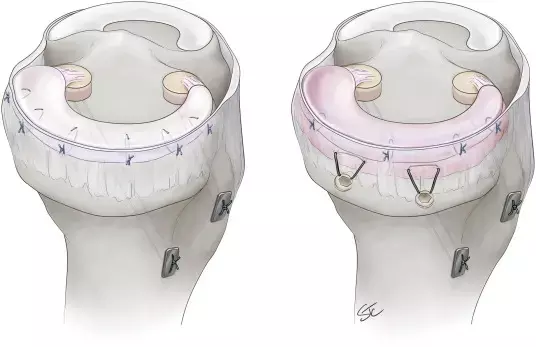- Home
- Medical news & Guidelines
- Anesthesiology
- Cardiology and CTVS
- Critical Care
- Dentistry
- Dermatology
- Diabetes and Endocrinology
- ENT
- Gastroenterology
- Medicine
- Nephrology
- Neurology
- Obstretics-Gynaecology
- Oncology
- Ophthalmology
- Orthopaedics
- Pediatrics-Neonatology
- Psychiatry
- Pulmonology
- Radiology
- Surgery
- Urology
- Laboratory Medicine
- Diet
- Nursing
- Paramedical
- Physiotherapy
- Health news
- Fact Check
- Bone Health Fact Check
- Brain Health Fact Check
- Cancer Related Fact Check
- Child Care Fact Check
- Dental and oral health fact check
- Diabetes and metabolic health fact check
- Diet and Nutrition Fact Check
- Eye and ENT Care Fact Check
- Fitness fact check
- Gut health fact check
- Heart health fact check
- Kidney health fact check
- Medical education fact check
- Men's health fact check
- Respiratory fact check
- Skin and hair care fact check
- Vaccine and Immunization fact check
- Women's health fact check
- AYUSH
- State News
- Andaman and Nicobar Islands
- Andhra Pradesh
- Arunachal Pradesh
- Assam
- Bihar
- Chandigarh
- Chattisgarh
- Dadra and Nagar Haveli
- Daman and Diu
- Delhi
- Goa
- Gujarat
- Haryana
- Himachal Pradesh
- Jammu & Kashmir
- Jharkhand
- Karnataka
- Kerala
- Ladakh
- Lakshadweep
- Madhya Pradesh
- Maharashtra
- Manipur
- Meghalaya
- Mizoram
- Nagaland
- Odisha
- Puducherry
- Punjab
- Rajasthan
- Sikkim
- Tamil Nadu
- Telangana
- Tripura
- Uttar Pradesh
- Uttrakhand
- West Bengal
- Medical Education
- Industry
Meniscal allograft transplantation improves patient reported outcomes in moderate knee osteoarthritis at 2 years postoperatively

Understanding of the importance of the meniscus for knee joint biomechanics and biology has changed during the last 5 decades.
Anni Aavikko et al conducted a prospective follow-up study to explore meniscal allograft transplantation (MAT) survivorship and patient satisfaction among young patients with symptomatic meniscal deficiency and radiological OA of different Kellgren– Lawrence (K–L) grades.
Thirty-five consecutive MAT patients were prospectively followed up for 2 years. The lateral meniscus was replaced in 29 patients and the medial meniscus in 6 patients. Outcomes were assessed using the KOOS4 composite score, KOOS subscales, Lysholm knee score, and OA K–L grade progression from weight-bearing knee radiographs. For the outcome analysis, patients were categorized into two groups: 19 in Group A (K–L classification 0–1) and 16 in Group B (K–L classification).
Key findings of the study were:
• No bilateral transplantations were performed.
• As a concomitant procedure to MAT, distal femoral osteotomy (DFO) was per formed for 6 patients (17%), high tibial osteotomy (HTO) for one patient (3%), revision ACL surgery for 6 patients (17%), and microfracture of local ICRS grade 4 cartilage lesions for 8 patients (3, tibia condyle; 2, femur condyle; and 3, trochlea). In five of these patients (14%) microfracturing was the only concomitant procedure, while the three others underwent both DFO and microfracturing.
• In terms of KOOS4 and Lysholm scores, the patients showed a clinically significant improvement from baseline to the 1-year follow-up (22.2 points, 95% CI 16.6–27.8 for KOOS4 and 16.8 points, 95% CI 8.9–24.6 for Lysholm), and the improvement remained at 2 years (20.6 points, 95% CI 13.2–28.1 for KOOS4 and 21.5, 95% CI 12.5–30.7 for Lysholm). At the 6-month follow-up, this improvement was not yet observed.
• Minor between-group differences were observed in the KOOS4 and Lysholm scores for the K–L 0–1 and K–L 2 OA groups, but the estimates were imprecise with wide confidence intervals.
• A clinically relevant difference between these two study groups could not be found at any timepoint.
• The reoperation rate was higher in the K–L 2 group than in the K–L 0–1 group (31% vs. 11%).
“MAT yielded improved patient-reported outcomes and subjective satisfaction at 1 and 2 years postoperatively. The differences from baseline exceeded the minimal clinically important difference (MCID) at all timepoints. The severity of cartilage damage and knee OA in terms of the K–L grade at the time of surgery did not affect the KOOS and Lysholm scores after the MAT procedure. Knee OA progression in terms of K–L grade worsening was not observed in any patients” the authors concluded.
Level of evidence III.
Further reading:
Meniscal allograft transplantation improves patient reported outcomes in both minimal and moderate knee osteoarthritis at 1 and 2 years postoperatively, Anni Aavikko, Ville Bister et al, Knee Surgery, Sports Traumatology, Arthroscopy https://doi.org/10.1007/s00167-023-07625-3
MBBS, Dip. Ortho, DNB ortho, MNAMS
Dr Supreeth D R (MBBS, Dip. Ortho, DNB ortho, MNAMS) is a practicing orthopedician with interest in medical research and publishing articles. He completed MBBS from mysore medical college, dip ortho from Trivandrum medical college and sec. DNB from Manipal Hospital, Bengaluru. He has expirence of 7years in the field of orthopedics. He has presented scientific papers & posters in various state, national and international conferences. His interest in writing articles lead the way to join medical dialogues. He can be contacted at editorial@medicaldialogues.in.
Dr Kamal Kant Kohli-MBBS, DTCD- a chest specialist with more than 30 years of practice and a flair for writing clinical articles, Dr Kamal Kant Kohli joined Medical Dialogues as a Chief Editor of Medical News. Besides writing articles, as an editor, he proofreads and verifies all the medical content published on Medical Dialogues including those coming from journals, studies,medical conferences,guidelines etc. Email: drkohli@medicaldialogues.in. Contact no. 011-43720751


